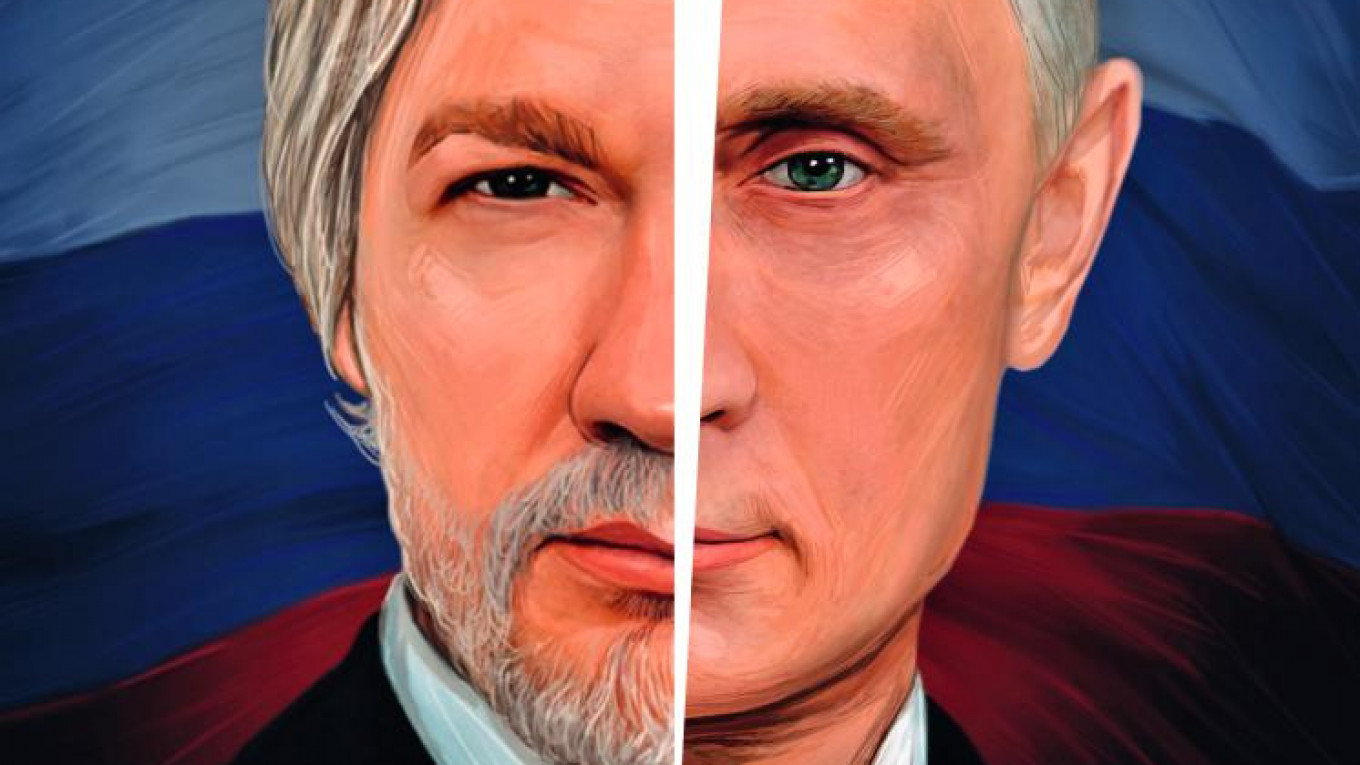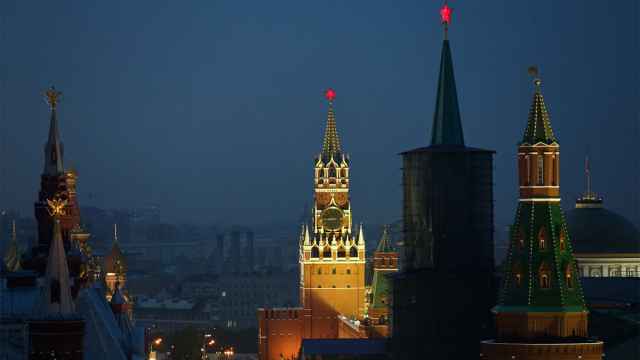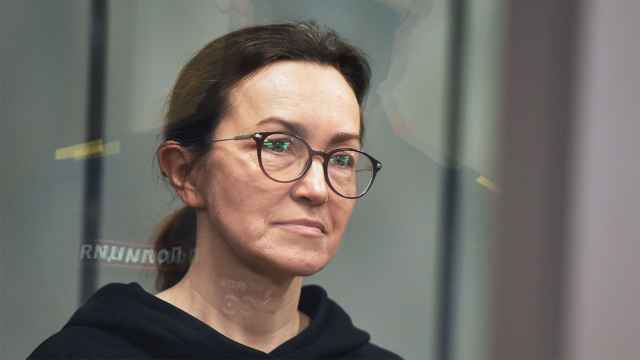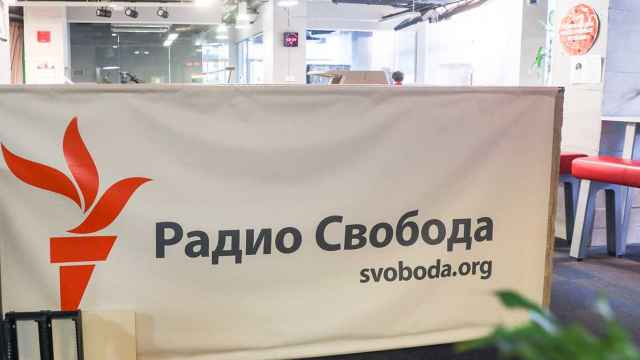The timing couldn’t have been better for Moscow.
Russia was being accused by U.S. intelligence of hacking the 2016 presidential election in support of Donald Trump. Documents stolen in the hack, agencies allege, were given to WikiLeaks for public release. Many Trump opponents blamed Russia for his victory. And Washington hummed with speculation about illicit meetings between Trump administration officials and the Russian ambassador.
Then, on March 7, WikiLeaks released “Vault 7,” a trove of documents detailing CIA surveillance and cyber warfare capabilities. Among its many shocking revelations, the cache showed that the U.S. intelligence agency could carry out cyber attacks imitating other countries — including Russia.
While it is unclear who leaked the documents, the information seemed calculated to undermine faith in the hacking allegations against Russia and, possibly, to support Trump.
Soon politicians weighed in. Senator John McCain, a noted Russia hawk, asserted that “WikiLeaks has had a Russian connection.” Former CIA Director Michael Hayden said he believes WikiLeaks was "acting as an arm...of the Russian Federation.”
But for all the talk of an alliance between WikiLeaks and the Russian state, many experts believe the reality is more complicated.
The Man in the High Tower
Few people who know WikiLeaks from the inside — former employees and collaborators — are willing to talk openly about the organization today. The whistleblowing platform’s mercurial leader, Julian Assange, and his supporters have harassed many critics into silence. Even Edward Snowden — the leaker who revealed mass surveillance by the U.S. National Security Agency and subsequently sought asylum in Moscow on Assange’s advice — has run afoul of the WikiLeaks founder in recent months.
Several former Wikileaks collaborators declined to speak with The Moscow Times on the record. But their collective characterizations of the organization paint a chaotic picture. Contrary to the image it presents, WikiLeaks is neither a large organization, nor motivated purely by ideology. Assange — currently hiding out in the Ecuadorian Embassy in London to avoid Swedish rape charges — dominates the organization, and its actions reflect his personal motivations.
“Julian has long viewed the world through the prism of his own situation,” one former WikiLeaks collaborator told The Moscow Times on condition of anonymity. Assange sees Russia as a supporter, and views the U.S. and Britain as his enemies. As a result, “in recent years, WikiLeaks and the Russian state have effectively joined forces,” the former collaborator said.
Others question that the relationship is so straightforward. Mark Galeotti, a researcher at the Institute of International Relations Prague and an expert on the Russian security services, believes Russia views WikiLeaks as a “convenient outlet when it has material it wants to make public.”
But this means keeping a low profile. Russia likely does not have “institutional contact” with Assange, as this would only serve to discredit WikiLeaks. Still, Assange would have to be “extraordinarily stupid and naive” not to realize the DNC hacks came from Russia, Galeotti says.
“The problem is that the information that’s being distributed is real,” he says. “That makes it much less of a problem for people of [Assange’s] ideological bent.”
Black Box
Maintaining “plausible deniability” is likely key to any possible ties between Russia and WikiLeaks. But this deniability is also built into the organization.
Both supporters and critics of Wikileaks told The Moscow Times that WikiLeaks’ means of receiving leaks can often make it very difficult to trace their origins — or confirm their veracity. The organization accepts anonymous, encrypted submissions online.
WikiLeaks is a “black box,” says Israel Shamir, a controversial activist connected with the organization. “If it would be possible to say I got it from John or Mark, pretty soon the CIA or FSB [Russian security services] would come running after them.”
A Russian-born writer frequently accused of anti-Semitism, Shamir portrays himself simply as a WikiLeaks-accredited journalist in Russia. But his real role was much greater. He visited Assange in Britain in 2010 and was entrusted with distributing leaked U.S. diplomatic cables to Russian journalists.
His involvement in the organization alarmed several former participants in the WikiLeaks project, and some suggest he may be the conduit between Russia and Assange. Shamir is also believed to have passed diplomatic cables onto the government of Belarus, leading to the arrest of opposition activists in the country.
(Shamir denies any connections to the Russian or Belarusian governments and says he simply published articles based on documents related to Belarus. He says he no longer works with WikiLeaks.)
But Shamir’s characterization of WikiLeaks is at least partially correct.
“In theory, it’s a safe and anonymous letter box,” Galeotti says. “But I have a suspicion that things are sometimes fed in, and [WikiLeaks does] know where they came from.”
Changing Fortunes
If Russia has ties with WikiLeaks today, that certainly wasn’t the case seven years ago, says Mika Velikovsky, a Russian journalist who worked extensively with WikiLeaks and interviewed Assange three times.
While working for the magazine Russian Reporter, WikiLeaks’ main partner in Russia, Velikovsky received packets of U.S. diplomatic cables from Shamir, sorted through the documents and published articles based upon them. He also worked on the 2012 leak of emails from the intelligence company Stratfor and collaborated with WikiLeaks on the 2013 documentary film Mediastan.
In 2010, Velikovsky defended WikiLeaks on Russian state television’s political talk shows — programs that often reflect the positions of the Kremlin. There, he clashed with pro-Kremlin experts who claimed that WikiLeaks was the anti-Russian project of American spies.
“At the time, it seemed the authorities were worried about WikiLeaks and didn’t know what it was,” he says. “So the Russian mainstream media was very anti-WikiLeaks.”
Then, in 2012, Julian Assange got a show on RT, a Russian state-funded propaganda channel. The development came amid a worldwide financial blockade of WikiLeaks, when the organization desperately needed money. Velikovsky thinks Assange’s appearance on RT marked WikiLeaks’ transformation from a threat to an ally in the eyes of the Russian authorities.
However, he suggests that WikiLeaks’ seeming alliance with Russia stems from Assange’s own personal predicament. Hiding in the Ecuadorian Embassy for over 4 years has robbed Assange of “a lot of the joy [of life] that you and I have,” Velikovsky says. “If someone did that to us, it would be very personal.”
But to the anonymous former WikiLeaks collaborator who spoke with The Moscow Times, that’s hardly an excuse — particularly after the U.S. election hacks.
“It’s one thing publishing material from a whistleblower like Edward Snowden who is acting from idealistic motives,” he said. “It’s another acting as the publishing wing of Russian intelligence.”
A Message from The Moscow Times:
Dear readers,
We are facing unprecedented challenges. Russia's Prosecutor General's Office has designated The Moscow Times as an "undesirable" organization, criminalizing our work and putting our staff at risk of prosecution. This follows our earlier unjust labeling as a "foreign agent."
These actions are direct attempts to silence independent journalism in Russia. The authorities claim our work "discredits the decisions of the Russian leadership." We see things differently: we strive to provide accurate, unbiased reporting on Russia.
We, the journalists of The Moscow Times, refuse to be silenced. But to continue our work, we need your help.
Your support, no matter how small, makes a world of difference. If you can, please support us monthly starting from just $2. It's quick to set up, and every contribution makes a significant impact.
By supporting The Moscow Times, you're defending open, independent journalism in the face of repression. Thank you for standing with us.
Remind me later.






